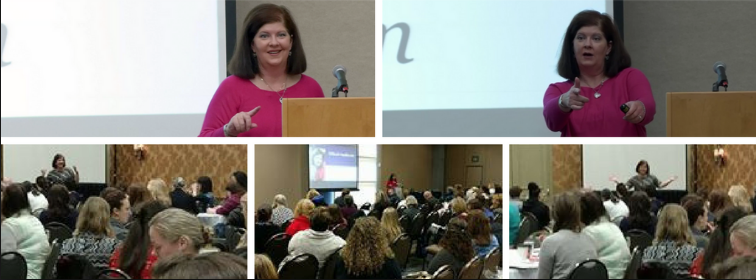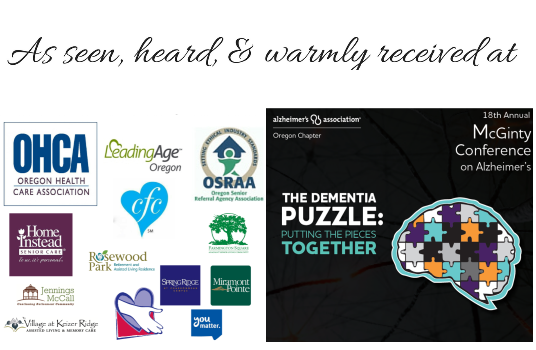We call it
Denial. Arguing. Lying. Behaviors.
It’s not.
For our loved ones, it’s simply COMMUNICATION. The guide shows you how to start speaking their language.
“It’s an excellent, high-value guide! I feel so blessed that I get to read it and soak up your expertise and advice. Gives the reader an AMAZING head start!“ – Regan Black, South Carolina
Christy Turner

Speaker
“I found all of the information you provided to be relevant and extremely helpful, and I love your manner and approach – straight to the point but warm, welcoming and with a bit of humour too, which lightens the tone when discussing the distressing reality of dementia.”
Consultant
“If you are faced with caring for someone with dementia and/or Alzheimer’s and are overwhelmed, I highly recommend that you and your family meet with Christy to get help with your current situation and also planning for the future. Knowledge is power!”
Trainer
“Life has become fast paced, limited resources and many time constraints. Why not have the best working on your behalf and the interests of your loved one?”

Peace. Harmony. Moments of Joy. Ease. Respect. Kindness. Love.
Sounds good, yeah?
It can be that way with your parent or partner living with dementia, too. Really.
I got my start working with people living with dementia when I was 8 years old, when my mom took me to work with her one summer day. My ‘job’ was to visit with the residents. (To my 8 year-old mind, my ‘job’ was to soak up the attention of 50 grandmas and grandpas. Best summer job ever.) A great big guy (think the guy in The Green Mile) decided he was going to walk home to St. Louis. We were in California, in the middle of nowhere. It was a hundred and hell out that day. The staff told him he couldn’t walk home. It was too far away. He’d get tired. He couldn’t walk that far. It was too hot. Blah blah blah. Four staff cornered him to keep him from going out the door. I told you how big he was; you know what happened next. Somewhere in my 8 year-old brain, I got the genius idea that I’d be helpful. So I ran out of the building, out the gate, and down the road after him. When I caught up to him, I looked up at him and put my hand out. He put his hand in mine. I turned around, and he followed suit because we were holding hands. We walked back into the building together.
What’s the point? That managing dementia is so easy even an 8 year-old can do it?
Nah.
I did happen to get it right that day, but it took a little over 20 years to figure out what I did that made that interaction successful.
In fact, my next memorable interaction with a person living with dementia is from my very first day as a professional. That’s the day I got hit upside the head and knocked on my butt–all before lunch time. After lunch, I made a nice lady cry because of my stupidity. Those experiences were powerful motivators for figuring out what worked and what clearly did not. The point is, I did figure out what works. And the good news is, you don’t have to figure it out. I already did, and I’m happy to show you.
● I’ll show you why arguing doesn’t work–and what to do instead.
● Explain how we fall into the trap of arguing–and a mindset shift that will keep you out of that trap.
● Give you exact strategies for how to avoid arguments, AND how to communicate with your parent or partner in a way that makes sense to them.
● Explain what’s really going on when your parent or partner is “lying,” in “denial,” or “having behaviors.”
You may be shocked when you find out (…and then facepalm when it suddenly makes such obvious sense to you). None of these tips and strategies cost money to implement, and they’re all yours, free.